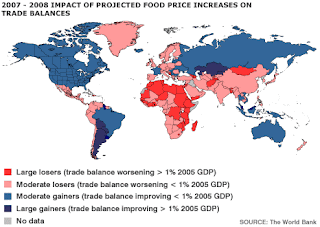Surprise, surprise? Not at all. Bailout made it to the top during the last weeks of the year thanks to US$700 billion that the US Federal Reserve pumped into the pockets of big money makers.
If you feel tempted to think that bailing someone out (or being bailed out, for that matter) is sort of trendy, think twice. A Word of the Year could mean that a stern judgment is being passed on the way things are being handled.
The recipients of the US$700 billion awards, hunger-makers as they are, are showing us that things are not going to improve. Not at least for the ones bailing them out, that is, the pedestrian tax payers. A point in case: one of these very clever winners, Citi Group, managed to get the US people come up with US$25 billion to its rescue so that it could cover its liabilities while pocketing its assets. Cam Harvey, from Duke University, finds this move to be very damaging:
"It wasn't that long ago that Citigroup was considered a "good" bank. Remember October 1, 2008? Citigroup announced it was acquiring Wachovia with the help of the FDIC. You had to be strong to do a favor to the government like that.
"Citi was also a recipient of $25 billion in the first tranche of the $125 billion TARP money. However, we know now Citi was not healthy. On Friday, Citi stock closed at $3.77 implying an approximate market cap of $19 billion -- just a few weeks after the Treasury had injected $25 billion in capital. This implied that the government was throwing $25 billion at something that was worth -$6 billion! It is the classic throw of good money at bad. I am fully aware that some type of intervention was necessary. Citi falling would have created even worse chaos in markets. But the recent injection of a further $20 billion and huge government guarantees on troubled assets is a spectacularly bad deal for the American (sic) taxpayer."













